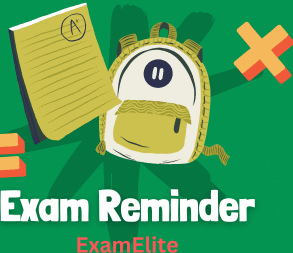When it comes to education, every grade matters. Both instructors and students might benefit greatly from the strategic use of bonus questions on standardised tests. You may use these optional, extra-credit questions to make up for difficult or poorly understood content, encourage more in-depth thinking, or both.
This article delves into the concept of bonus test questions, their benefits, practical tips for implementing them, and their importance in modern educational assessments.
Exam Bonus Questions: What Are They?
Teachers often include bonus questions on quizzes, tests, and final exams as a way to provide students more credit or flexibility. Students have the chance to earn bonus points that might boost their final score, but unlike regular questions, they aren’t required to pass the exam.
There is a wide variety of possible formats for these queries, such as:
-
Added questions that need a quick yes/no response
-
Problems with advanced critical thinking
-
Not included in the required course material yet posing creative or analytical questions
-
Interesting questions that are only tenuously related to the content we’ve covered
Students who are on the cusp of failing or who want to challenge themselves might benefit greatly from this buffer or motivation.
Teachers Give Out Bonus Questions—Why?
Several reasons exist for why teachers include bonus questions in exams:
1. Advocate for Comprehensive Education
Bonus questions often require students to demonstrate their understanding rather than rely only on memorisation. This helps gauge students’ level of understanding while also fostering critical thinking.
2. Offer a Protective Framework
Misunderstanding questions, anxiety, or minor mistakes are all possible for students. Bonus questions, which provide more opportunities to score, might help mitigate these issues.
3. Motivations to Get Involved
Teachers may provide bonus questions as a way to recognise students who participated actively in class discussions, did extra assignments, or went to elective lectures.
4. Find More Inspiration
If students know they have a chance to earn more points, they may study more and take exams more seriously.
5. Handle Difficult Content
Students may show that they understand some of the curriculum’s more challenging material by answering bonus questions that do not count against their final score.
Varieties of Exam Supplemental Questions
There are several different methods in which teachers might include bonus questions. This is a list of some common ones:
-
In addition to being amusing, trivia questions typically have a light-hearted link to the issue at hand.
-
Problems that pose a higher-order problem and go beyond the usual course material are called challenge problems.
-
Chapters that were not covered extensively on the test or material from earlier sections are often used as the basis for review questions.
-
A reflection question is one that asks students to think about what they have studied and how they have used it.
-
Questions based on scenarios sometimes include analysing a real-life situation or finding practical applications of course material.
Using a range of these formats increases the likelihood that the exam will be fair and accessible to students with a wide range of learning styles.
Strategies for Students to Use in Answering Bonus Questions on Exams
Students often doubt the value of answering more questions. In a nutshell, yes, provided that time allows. You may effectively handle them by following this advice:
1. Prioritise the Main Exam. At first,
Always complete the mandatory questions before accessing the bonus section. The primary metric is your overall performance.
2. Schedule Your Time
If you know there may be more questions at the conclusion of the exam, be sure you leave enough time to answer them.
3. Try your best
Try to provide a well-considered answer or make an educated guess, even if you are unsure, since bonus questions often do not carry consequences for incorrect answers.
4. Apply Reasoning
Answer challenging extra questions using reasoning, logic, and what you’ve learnt in class; you may gain points for even partial answers.
5. Don’t Overthink Things
Bonus questions may sometimes be designed to be light-hearted or simple. Spending too much time analysing things might lead to mistakes and a loss of productivity.
Tips for Teachers on Making Effective Bonus Questions for Exams
Consider these guidelines if you are a teacher considering adding more questions to your exams:
1. Follow the Objectives for Learning
Bonus questions should still have some connection to the content covered in class, even if it’s only a tenuous one. Stay away from questions that aren’t directly related to the course material.
2. Lay Out the Rules
Unambiguously state whether or not the questions are optional and how many additional points they are worth. Keeping expectations in check is easier with transparency.
3. Avoid Undue Advantages
Subjects covered in more limited settings, such as elective classes or focus groups, should not, without prior notification, form the basis of bonus questions.
4. Revise the Organisation
Using a range of question forms, including multiple choice, essay, and case study, helps to reduce test fatigue and accommodates different kinds of learners.
5. Add Some Fun or Interest
Bonus questions provide a chance to incorporate deeper philosophical ideas or fresh perspectives. Take a history teacher who asks, “What historical event would you have liked to have seen firsthand and why?” as an example.
The Benefits of Search Engine Optimisation Material That Includes “Bonus Questions in Exam”
From an SEO (Search Engine Optimisation) perspective, the keyword “bonus questions in exam” helps to target a specific set of educators, learners, and educational institutions. Several factors contribute to its efficacy in selling educational content:
-
When people use this term, they are often seeking practical strategies or examples.
-
It is simpler to rank for long-tail keywords, which are phrases that convey specific user intent, in search engines.
-
Adherence to the Educational Niche: Works well with related topics such as test-taking tactics, student guidance, and course materials.
-
Content Versatility: It has potential for use in scholarly journals, blogs, how-to guides, and even video scripts for YouTube.
Be cautious to use this phrase in a natural way when you include it into:
-
Titles and headings, like the one used here
-
Summary of characteristics
-
The first hundred words of the text
-
Associated image alternative text
-
Links to related articles using anchor text
Exam Bonus Question Examples
To help put things in perspective, here are some sample supplemental questions:
-
Biology – Attention: Bonus: What do you think has been the most important finding in the field of biology in the last decade, and why?
-
Math Bonus: If x = 2 and y = 3, then what is the value of x² + y² + 2xy?
-
Subject: Literature Bonus: Read a book that has themes with the main book we read but that we didn’t talk about in class.
-
History Bonus Question: Please tell me which historical figure from the past would be the most active on social media now, and why.
These instances show how pertinent additional enquiries may be associated with more in-depth thinking, reasoning, and creativity.
Challenges and Considerations
Despite their benefits, bonus questions on examinations should be treated with caution:
-
An excessive amount of bonus points might distort the final mark, which could lead to grade inflation.
-
Dependency on Students: Some students may resort to extra questions to make up for their lack of study time.
-
If they aren’t made with everyone’s needs in mind, they might end up favouring certain groups over others.
It is essential to strike a balance; rather than rescuing students who weren’t paying attention, more questions should inspire effort and innovation.
Finally, Make the Most of the Exam’s Extra Questions
Whether you’re a teacher trying to find a new technique to encourage your pupils and assess them or a student trying to improve your grade, bonus test questions may add a meaningful element to the learning process. When used correctly, they have the ability to serve as a test for more advanced students, an inspiration for those in the class, and a pathway to success for every student.
If their aim is clear, they are well-crafted, and addressed strategically, teachers and students alike may benefit from using bonus questions.
